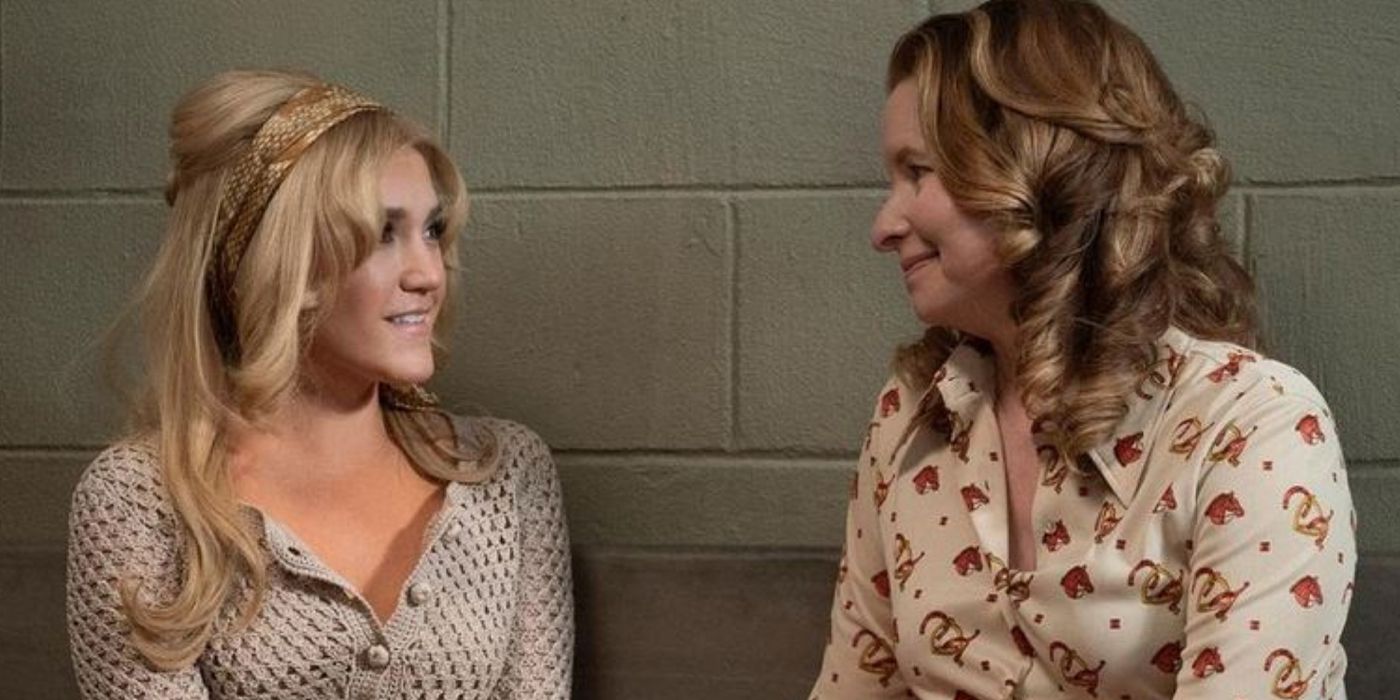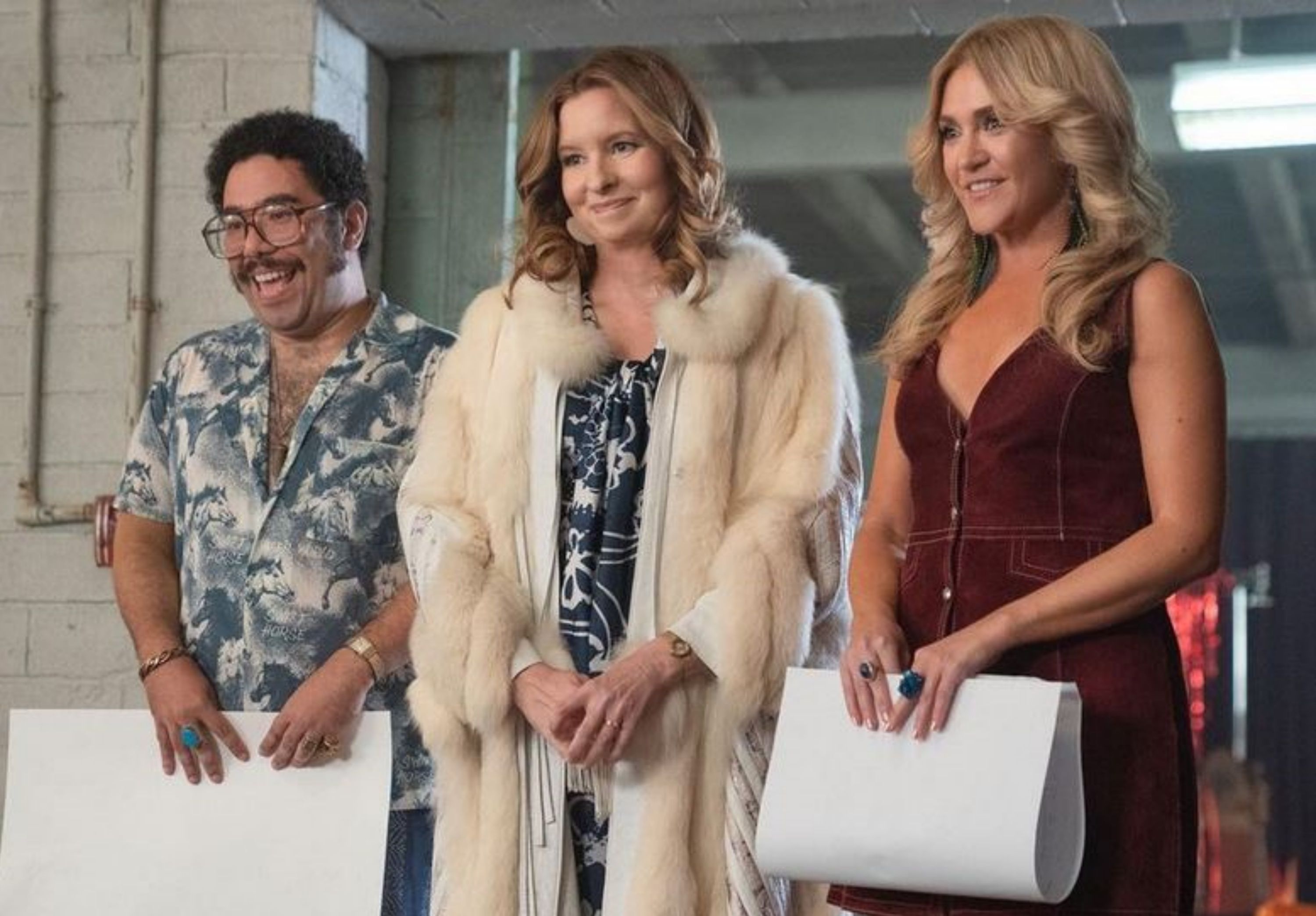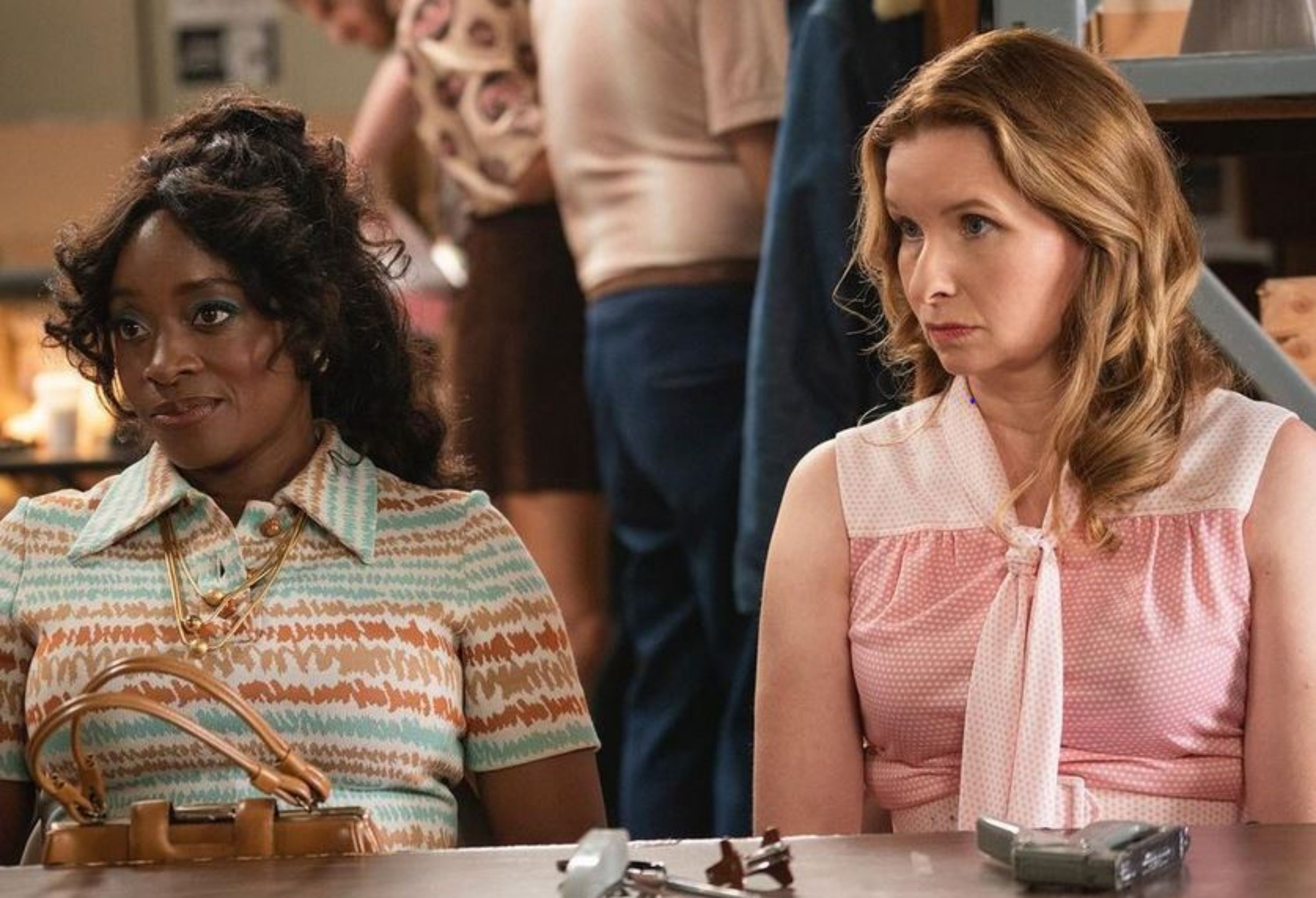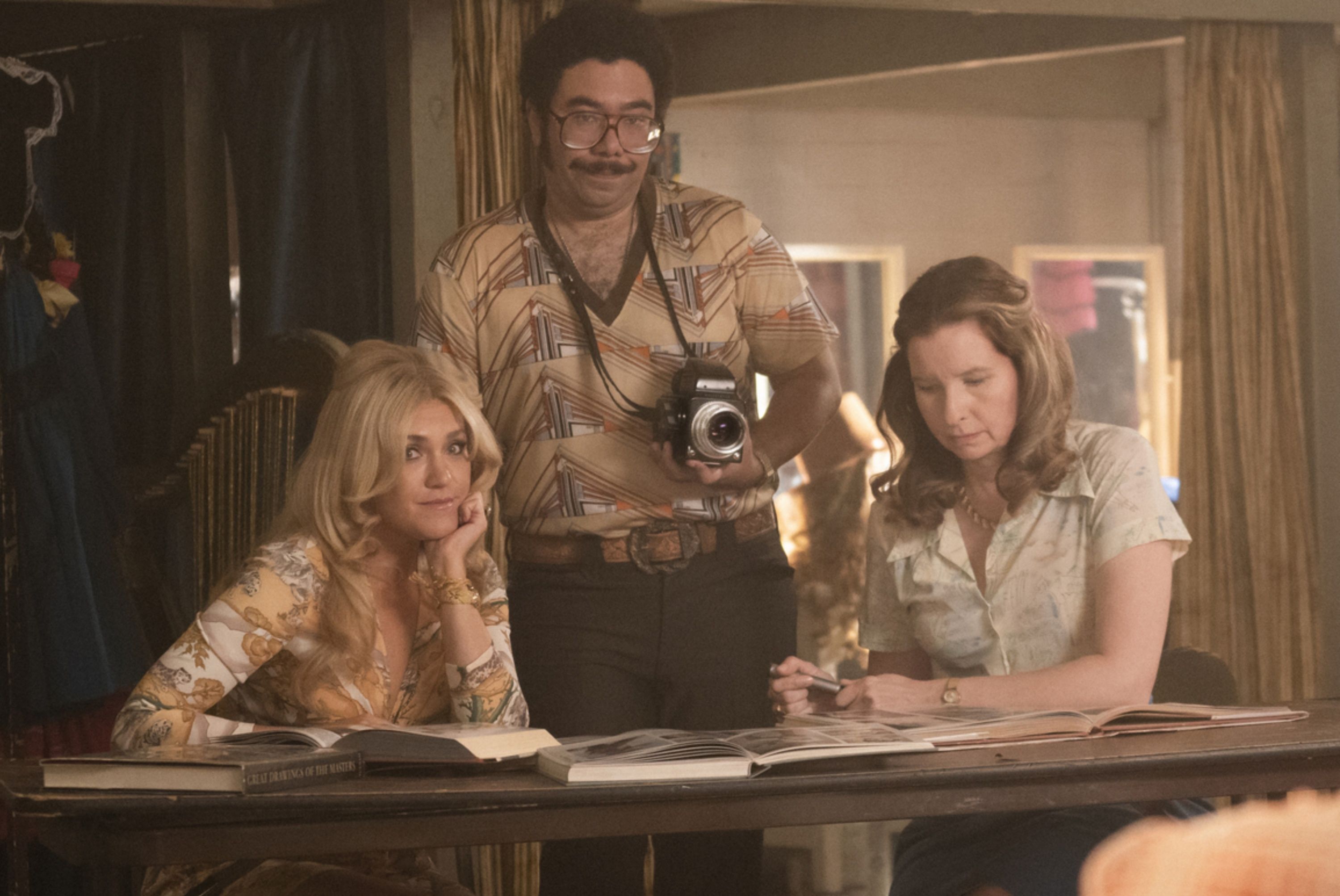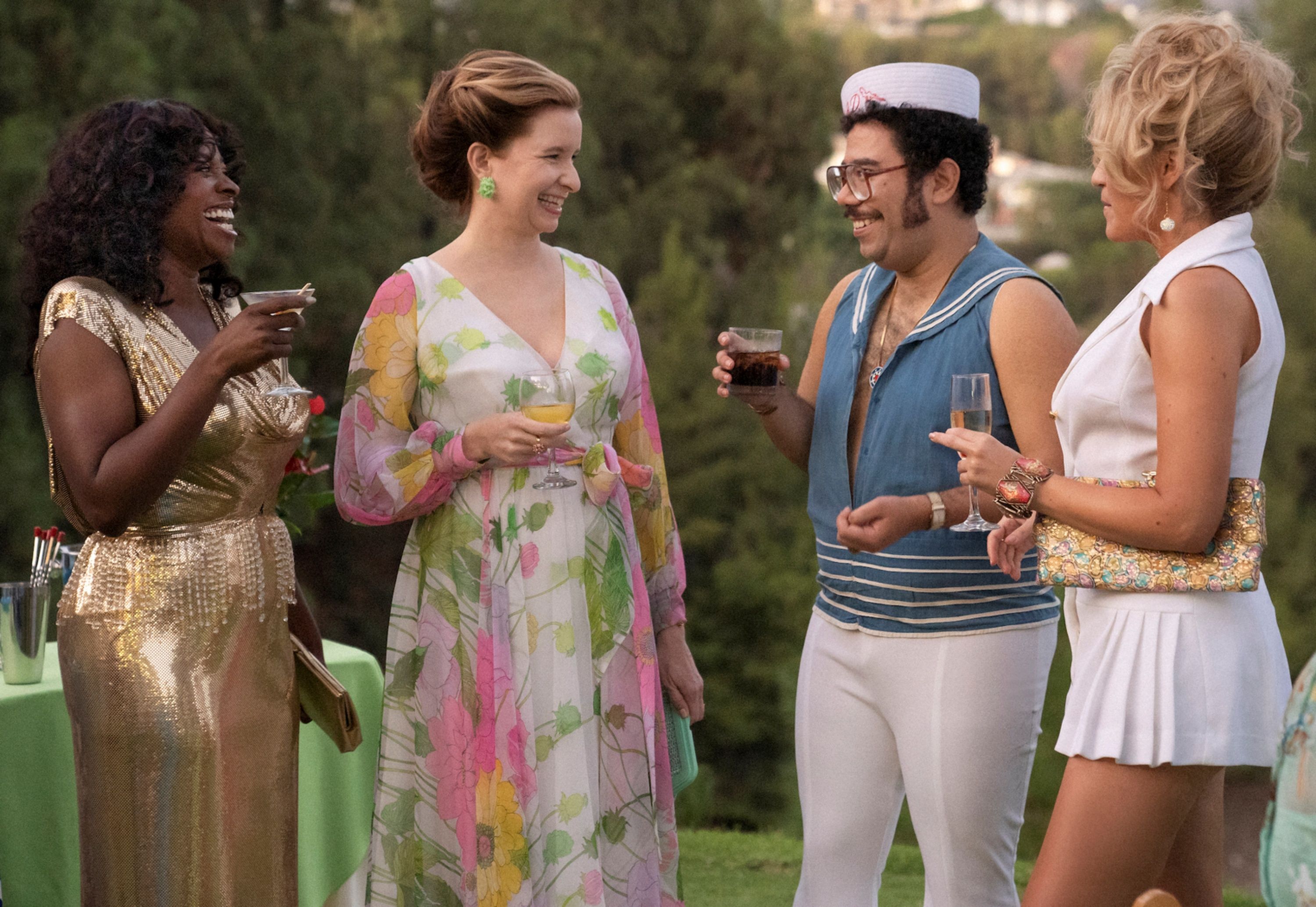[Editor's note: The following contains spoilers for Minx.]From creator/showrunner Ellen Rapoport and executive producer Paul Feig, the 10-episode HBO Max Original comedy series Minx takes place in 1970s Los Angeles and follows self-proclaimed feminist Joyce Prigger (Ophelia Lovibond), as she pursues her dream of putting out a magazine that will change the lives of women. When she crosses paths with Bottom Dollar porn publisher Doug Renetti (Jake Johnson), Joyce quickly realizes that, in order to achieve her goal and further the feminist revolution, she might need to do things a bit differently than she expected, thereby turning her original vision into the first erotic magazine for women.
Now that the entire first season is available to stream, Collider spoke 1-on-1 to Lennon Parham (who plays Joyce’s sister Shelly, a woman that seems like a repressed housewife but ultimately is so much more than that) about how much she knew about her character going into the series, the open dialogue she had with Rapoport, what she loves about Shelly, why working with this cast is like being in the comedy Olympics, the vibe on set, the sister dynamic between Shelly and Joyce, the growing friendship with Bambi (Jessica Lowe), and her hope for a second season. She also talked about her experience making Playing House, how she’d like to create another show at some point, and that she’s going to be getting some more directing experience this summer.
Collider: What were you told about this character ahead of time? How much did you know about her? Did you know she would be as fabulous as she turned out to be?
LENNON PARHAM: I didn’t know that. I had two scenes. I just read the pilot, and I loved the pilot. It was so funny. It was the funniest script I’d read in years, and it’s really hard to do that with a pilot because you have so much to accomplish. I love the world and the period piece of it and being behind the scenes at a porno mag. That’s just perfect for comedy. And I really liked the characters too. The two scenes in the pilot were with Joyce and Shelly, and she’s the engine that keeps the train running both times. There was an article that came out that called Shelly a Pasadena housewife whose world opens up, and I was like, “Oh, okay.” That was the information.
And then, right before I went to my first fitting for the series, (show creator) Ellen [Rapoport] texted me and was like, “Do you have five? I just wanna talk to you about Shelly’s arc.” I was like, “Okay, cool.” She was like, “I just wanted to explain to you why your costumes are changing a little bit, and we’ve decided for Shelly, and what’s gonna happen with her.” She pitched me through the arc of Shelly. I didn’t know when it was gonna come and I didn’t know how it was gonna play out, but I knew that Shelly was gonna get involved in the magazine and also have a tryst with a lady named Bambi. We didn’t know how that was gonna happen and I didn’t know there was gonna be a whole sexual fantasy cold open starring Shelly. That was really exciting. It’s been really fun to play. It’s just exciting when characters change. With a lot of television sitcoms, characters stay the same, and that’s comforting and that’s why we return to them. But in a show like this, it’s just so exciting to see people come to their senses and be not judgey, and go on these wild rides and experiences.
At the same time, it must be reassuring to be able to talk to your show creator and know that she’s thinking about you and the character and has an arc in mind and a plan, as opposed to not having any of that.
PARHAM: Yeah, that’s true. Also, when you have more than 10 episodes, it’s hard to plan it out. You may know what’s gonna happen in the last episode with the main characters, but the supporting characters, you might not know. From the get-go, Ellen has honestly been very communicative in a refreshing way that I haven’t experienced in the past, where I do get texts about what’s happening and what’s coming, and I get conversations about it. That makes me feel respected, as a person who has run my own show. Maybe that’s something I’ll do, if I ever get to run a show again. Maybe I’ll chat through it with the people who I’m relying on to make my show run.
What have you loved about Shelly since day one, and what are the qualities in her that you grew to appreciate, the longer you played her and the more you got to know her?
PARHAM: I appreciated, early on, her sense of humor. I was like, “Oh, I get this woman. I know how to land these jokes.” She is sharp and dry, and those are things that I also feel about myself, so that was comfortable for me. She isn’t very judgey, which I think is really refreshing, and I could maybe take a page out of her book. I would never judge you to your face, but inside, I’m secretly thinking all of these thoughts. The openness with which she approaches all these new people and these new worlds is something that I like a lot about her. The thing that I connect to her on is the mom of it all, and getting lost in momhood, and wanting to carve out something that is only for you, the way that it used to be before you were a mom. Sometimes it can feel a little like you’re lost, but when you can carve out that moment for yourself, or that project, or whatever it is, and in my case, it was multiple TV shows, it can help your sanity and help you feel like, when you are with your kids, it’s more focused and more meaningful.
Was there anything that helped you find Shelly, especially on a day-to-day basis? Was it the hair and makeup and the wardrobe, was it walking onto the sets, was it being alongside your castmates, or was it all of the above?
PARHAM: The production design was incredible, and it’s very specific and detailed. Whenever you walked onto a new set, be it Joyce’s apartment or Shelly’s house, the front of which and the living room were actual locations in South Pasadena, in a house that was built at that time, it communicates that immediately when you walk into the space. And then, you’ve got your set hair. My hairstylist would do a full set on me, not rollers, but she’d curl it, then pin it, then set it. Then, I would go to makeup and they’d do their magic, and then I would go back to finish my hair. As the season went on, it got a little looser, as Shelly loosened up a little bit. And then, the costume designer was a mad genius. She would put stuff in my trailer and I’d be like, “This is insane. Never in a million years.” It was just the right touch.
So, with the combination of all of that, I feel like maybe I’m channeling my grandmother, in some way. Both my parents would’ve been young adults, around Joyce’s age, at that time. I remember my grandmother wearing some of these things, and she chain-smoked. She was a mom and a caretaker. Also, everybody else on this show makes it like the comedy Olympics. Everybody else was bringing such a high level of performance, with Jake [Johnson] and Ophelia [Lovibond] leading the charge. Jake is so crazy good, it’s outrageous. Who else could make that character lovable? That’s insane. That character is open to learning, and he’s aware that he doesn’t know everything, which is refreshing.
You’ve previously talked about how the makeup trailer was fully stocked with Playgirl magazines from the era. What mood did that set for the shoot?
PARHAM: The head of makeup ordered a bunch of vintage Playgirl magazines just to have. They weren’t in your face. They were just around. Covering the walls, there were all of these beautiful images of women from the time. They were country club women, ore Italian women, like from the mafia episode, and they were also all colors, all shapes, all ages. There were catalog photos and sexy nude pinup stuff. It got you in the space and the time period, but also the Bottom Dollar models were in there getting ready, as well. The five of them were so cool and awesome. Every week, there was a devil costume or a nun costume or a clown costume. Every week, there was a new theme and they were just so up for anything. You can’t take yourself too seriously when you’re getting a giant penis put on for two hours. You have to be in it to win it, and everybody really, truly was just up for that. The vibe on set was always so playful, but also respectful, and gave people space to do what they do well, and recognizing that there were naked ladies and men walking around. Everybody was treated with the respect they deserved.
Did it feel very different to be on a set with more male nudity than female nudity?
PARHAM: I’ve not been on a set where there was nudity, period, much less a bunch of penises. I live in a, a house with a husband, a daughter and a son, and I’m seeing that all the time. We have a thing we call naked booty time, which I think explains itself. But on set, you’re seeing other people’s stuff. I remember watching Game of Thrones and the brothel owner was giving an expositional speech, and they put two women going down on each other behind it, I guess so people would listen to this monologue about the history of the so-and-so family. I was like, “This does seem gratuitous, but I’m in it” It just came with those signature shows where, if you wanted to watch them, you were gonna have to see titty. [With Minx,] it’s just part of the world. It’s not gratuitous. I won’t say it’s not in your face because I do think it’s in your face, but that’s the point. It’s just normalized. It’s just what they deal with, every day. You’ve got my character, who’s getting used to it, but these other characters that do this all the time are also getting used to it. They’re so used to the naked women, but the naked men are a whole other level.
You talked about how your character is a mother and that she has lost herself a bit in marriage and motherhood. What do you think it is about out this world, specifically, that opens her up in a way that really does allow her to find her voice again?
PARHAM: She’s in charge of keeping the house and making sure that there are casseroles on the table for dinner, but she’s not really been asked to think in a business way or a creative way. That part of her was dormant, and it’s being ignited by being in this world. I also think seeing someone like her sister brazenly going for it is inspiring and titillating. This is not a world that she would’ve ever had access to, and she’s not gonna be telling people about it, but she’s so lit up in all of these ways. She’s problem-solving things that don’t have to do with meatloaf Mondays and that just feels so electric to her.
I really love the relationship between Shelly and Joyce. They’re very different, but their love for each other is clear. Knowing that relationship would be so important to your character, what was it like to meet Ophelia Lovibond? Did you guys click right away? Did you spend time talking about what that sister bond would be?
PARHAM: We rehearsed, in the beginning. Ophelia is from Britain, so she isn’t here all the time. Also, with COVID, we didn’t spend a whole lot of time outside of the world. (Director) Rachel [Lee Goldenberg] wanted to rehearse prior to the pilot, which I appreciated. And then, Ophelia wanted more rehearsal before we started shooting episodes two and three, which Rachel also directed. That was great. I don’t know when the last time I rehearsed for a television show was, so that felt really luxurious. And Rachel and Ellen could weigh in on what was working, and what they liked and what they didn’t like. Honestly, it was easy from the get-go. I just felt really comfortable with her. There is an element between the two sisters, probably because of the culture that was started at home where they’re not fully sharing and they don’t talk about everything, and certainly none of the sex stuff, that when they start to tiptoe into that world, that felt really electric. Shelly has been in the world. She’s had sex. She has kids. She has a vibrator. But she would never have shared that with anybody because that’s private stuff, so it must feel so good for her to say it out loud to somebody. And then, to find out that her sister, who’s touted as a feminist, is really quite a prude about all of that stuff, is fun. It also helped that Ophelia is British. British folks and American folks just have different ideas of what appropriate boundaries are. I would start talking about something that she probably would never have shared with anybody. I’d be like, “Let’s get into it.” And she was like, “Uh, okay.” Some of that was baked into who we are.
I also love the friendship that forms between Shelly and Bambi. There’s something so fun about watching those characters together. What do you think Shelly’s first impression of Bambi was, before she got to know her, and what do you think it is about Bambi that really opens Shelly up?
PARHAM: I don’t know that Shelly has ever met anyone like Bambi. She’s just completely who she is, open in every direction, and radiating joy and love. The first time Shelly meets her is at the country club when she walks in and she’s in that dress that’s a nod to sailors, but it’s so short that you can almost see her butt cheeks. Shelly is immediately taken by this ruckus group that shows up at the country club, rocking wardrobe from a porn shoot. I just think she finds it infinitely fascinating. She’s been talking to these old dudes and their wives for decades, and now she’s got this new audience and the stuff they talk about is just completely different. I think that’s really exciting for her. And then, as she develops this relationship with Bambi, they have a chemistry together that feels very natural. That also existed between me and Jessica [Lowe], from the get-go. I’m just in awe of her talent and beauty. She’s so freaking funny, and she doesn’t know how funny she is, which is like crazy. Maybe she does and she’s just pretending. There was a level of excitement between us, as actors, when we found out about the storylines that were coming, so that was good. And anytime I got to do a scene with her, I was excited about it.
With the way that the season ended, it feels like there is definitely still more story to tell. Have you thought about what you would like to see with Shelly? Are there things you’d still like to learn about her? What would you like to see her do?
PARHAM: It ends with this weekend tryst, and then she chooses to take this little bit more open her back to her husband and her family, which is the safe and sound choice. But she’s still rocking the bracelet that Bambi gave her, to make her feel comfortable in their sexy photoshoot. Obviously, it’s not over. That’s not over. For a woman in 1972, to come out or to choose an alternative sexual lifestyle, it would basically mean that she could never see her family again, in a lot of ways, or it would make things very difficult. She might be seen as an unfit mother. So, she’s gotta be very careful about how she proceeds. I don’t know what Ellen is cooking up, but fingers crossed that we get another season, and we get to see what happens. I don’t know. They did such a beautiful job with parsing out the story over Season 1 that I just wanna see what they have in mind because I know Ellen has already got ideas.
I loved the work that you did with Playing House, and that was a show where you really did it all. You co-created, you were one of the leads, you wrote it, you were an EP, and you directed an episode. Do you want to do all of those things and have that level of creative control again?
PARHAM: Yes. I loved it. It was a true labor of love. I had two babies during Playing House. I was pregnant with my daughter, who’s now almost nine. When we shot the pilot, I was eight months pregnant with her. And then, I gave birth to my son, right before we started shooting Season 3. I was pregnant all through the writers’ room. They’re at a certain age right now, where it makes it difficult for me to just bounce out, which I think creating a television show requires you to do, in a lot of ways. I’m not ready for that total upheaval and commitment in my life right now. It’s like giving birth. That’s what it feels like to me, in many ways. It takes nine months to do a 10-episode arc on a cable network because we write it all, then we shoot it all, and then we edit it all. There’s not a whole lot of crossover because we just can’t multitask in that way. So, I definitely wanna do it again. I’m just not sure when or in what form. I have a little bit of a hard time shaking that EP voice when I’m on set with other people, just as an actor, which I’m sure is annoying, but also maybe sometimes helpful.
I am gonna be directing some television this summer. I don’t know if I’m allowed to say what because I don’t know if that deal is closed, but I’m really excited about that. I’m scratching that itch in different ways and hoping to develop my director portfolio and direct things that also are really exciting, that I love and that I’m obsessed with. Also, Jessica [St. Clair] and I continue to write. We are currently finishing a movie that we hope to star in, that’s an adventure comedy about moms and daughters. Fingers crossed that someone will buy that and let us be in it. But for now, I’m so happy to be on someone else’s show, especially when they’re writing for me this way and when there are so many stellar professionals supporting me and surrounding the whole show. With a cast like this, it’s hard to say, “Nah, I’m gonna go do my own thing.”
If Minx comes back for another season, have you thought about throwing your hat in the ring to direct an episode? Is that something you would want to do?
PARHAM: I would love to. It’s a hard act to follow, with Rachel Lee Goldenberg, because she’s a genius. But I would love to, if they would have me. We’ll see.
Minx is available to stream at HBO Max.

